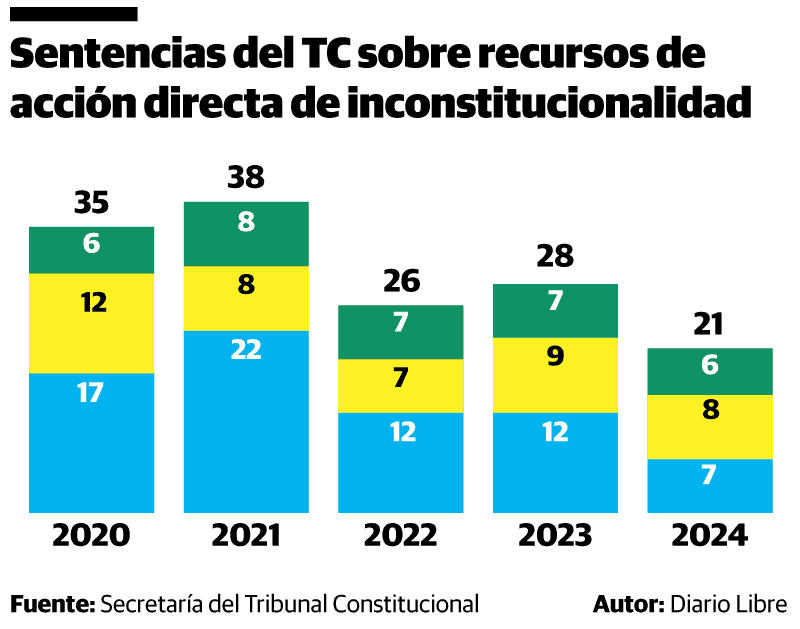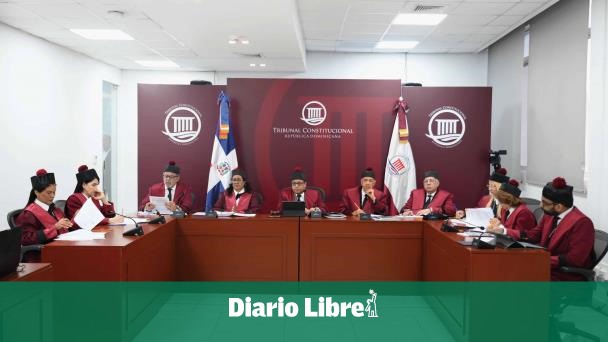He Constitutional Court (TC) is the body empowered to guarantee the adherence of the provisions and laws to the Magna Carta and the protection of the fundamental rights. However, how often are you forced to defend the interests of the country, above the laws that are enacted in Dominican territory?
According to the consultation website of this extra-powerful organization, from January 2020 to December 26, 2024, approximately 148 resources of direct action of unconstitutionalitywhich is a procedure that seeks to declare contrary to the Constitution some normative provision.
In these four years, 34 actions have been accepted by the high courtwhich means that in 22.9% of the cases, the TC has had to declare non-compliance with the Constitution one or more articles of a law.

Of these filesaround 70 were rejected, amounting to 47.2%, while 44 were declared inadmissible (29.7%).
The year in which the most failures were made direct actions of unconstitutionality It was 2021, with 38 sentences. Likewise, the year with the fewest decisions in this category was 2024.
Cases in 2024
The president of the TC, Napoleon Estevez Lavandierreported that, until November 6, 2024, that high court failed 976 files.
Of the total cases resolved, 242 were issued in matters of protectionwhich means that about 25% of the sentences issued by this institution were related to fundamental rights.
He magistrate assured that the robes of the Constitutional Court They have assumed the responsibility of being the highest guarantors of the rights and freedoms of citizens.
The DNI law
One of the most recent cases in which the unconstitutional A law dates back to December 6, when the TC annulled Law 1-24, which creates the National Intelligence Directorate (DNI). In Judgment TC/0767/24, it accepted the action brought by opposition parties, alleging that it affected a fundamental right indirectly or incidentally.
According to the latest summary of the Constitutional Court, from 2012 to September 30, 2024, 10,201 cases have been received and the judges have achieved the approval and publication on the institutional web portal of 7,823 failed appeals.
Since its implementation, some 242 files have been merged and the “constitutional review of the amparo ruling” has been the most notable process.















